Normal Punctuation Worksheets for Ages 5-8
12 filtered results
-
From - To
Explore our engaging Normal Punctuation Worksheets designed specifically for children ages 5-8! These worksheets are perfect for helping young learners grasp essential punctuation concepts such as periods, commas, and question marks. Each activity is crafted to enhance writing skills while making learning fun and interactive. With colorful illustrations and age-appropriate exercises, students will practice using punctuation in various writing contexts, improving their comprehension and expression. Perfect for classroom use or at-home practice, our worksheets encourage creativity and make punctuation exciting. Equip your child with the skills they need to communicate effectively through writing. Download and inspire their journey today!
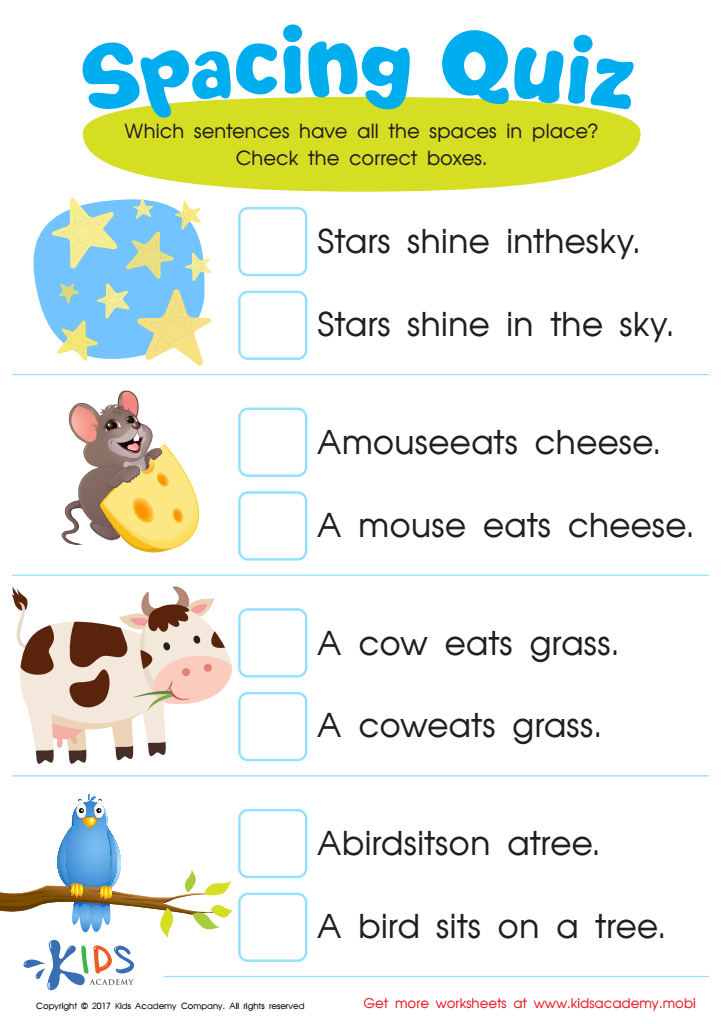

Spacing Quiz Worksheet
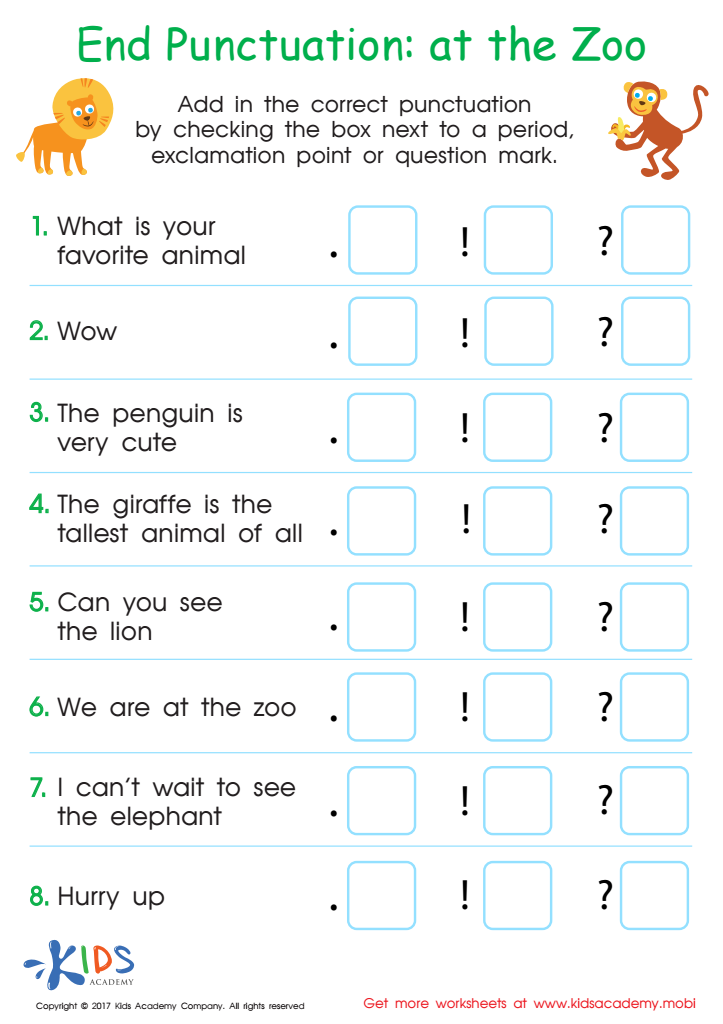

End Punctuation: At the Zoo Worksheet
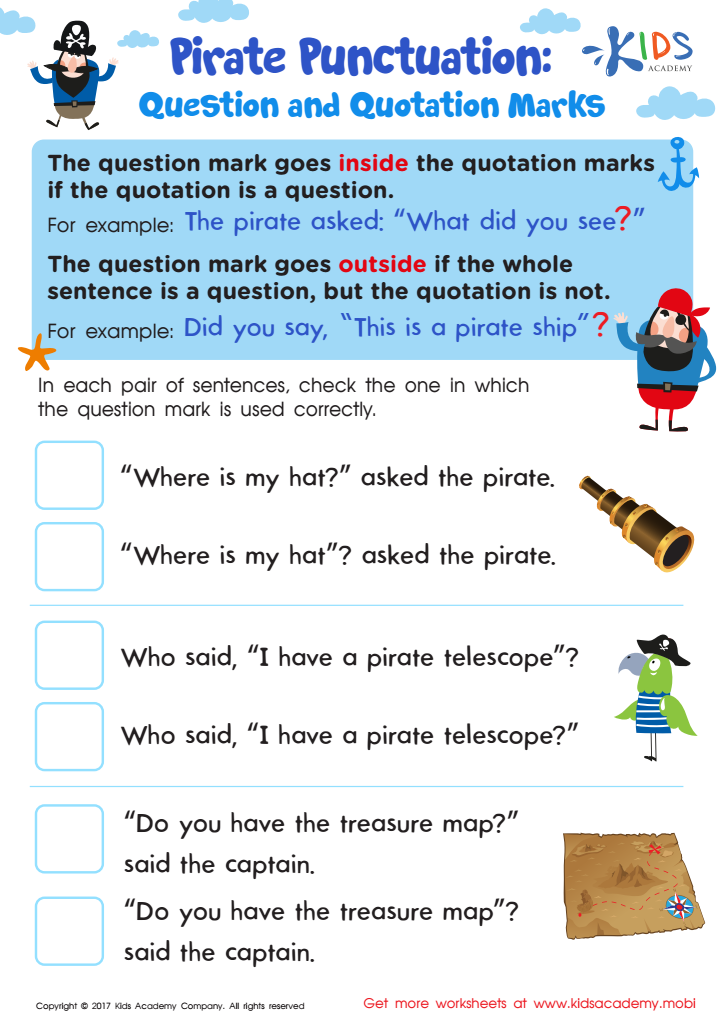

Question and Quotation Marks Worksheet
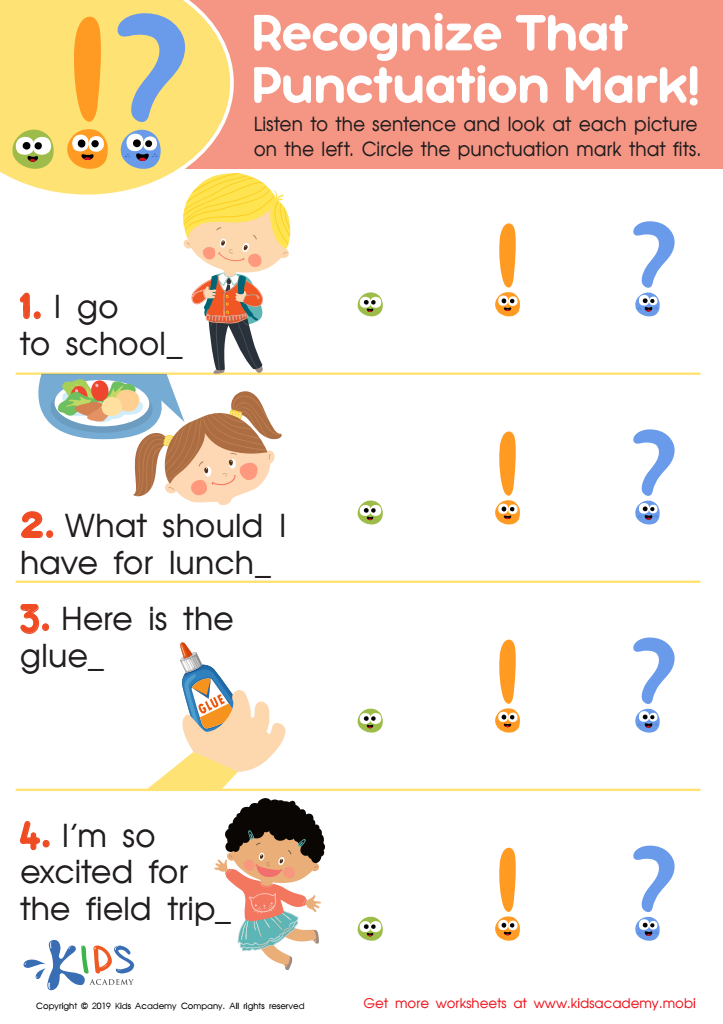

Recognize Punctuation Marks Worksheet
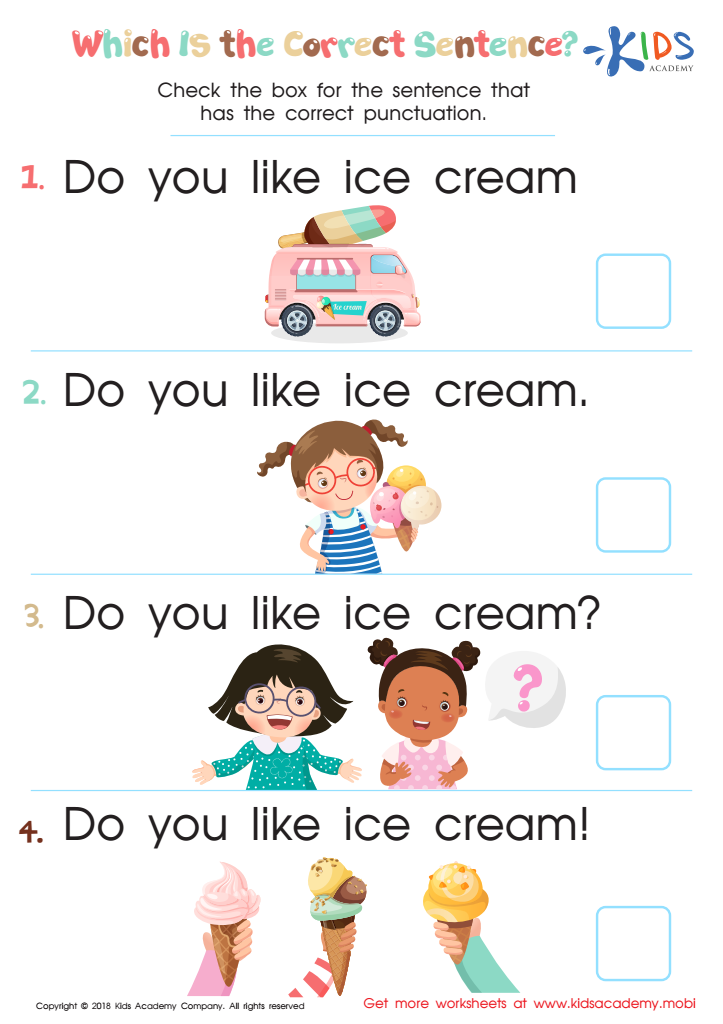

Which is the Correct Sentence? Worksheet
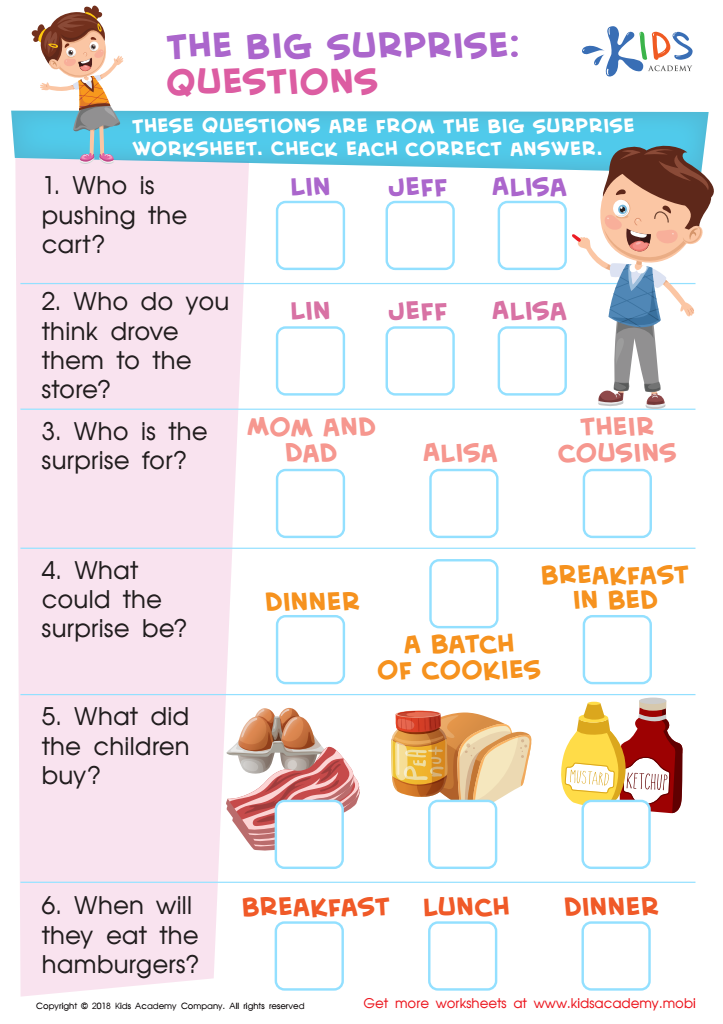

The Big Surprise: Questions Worksheet
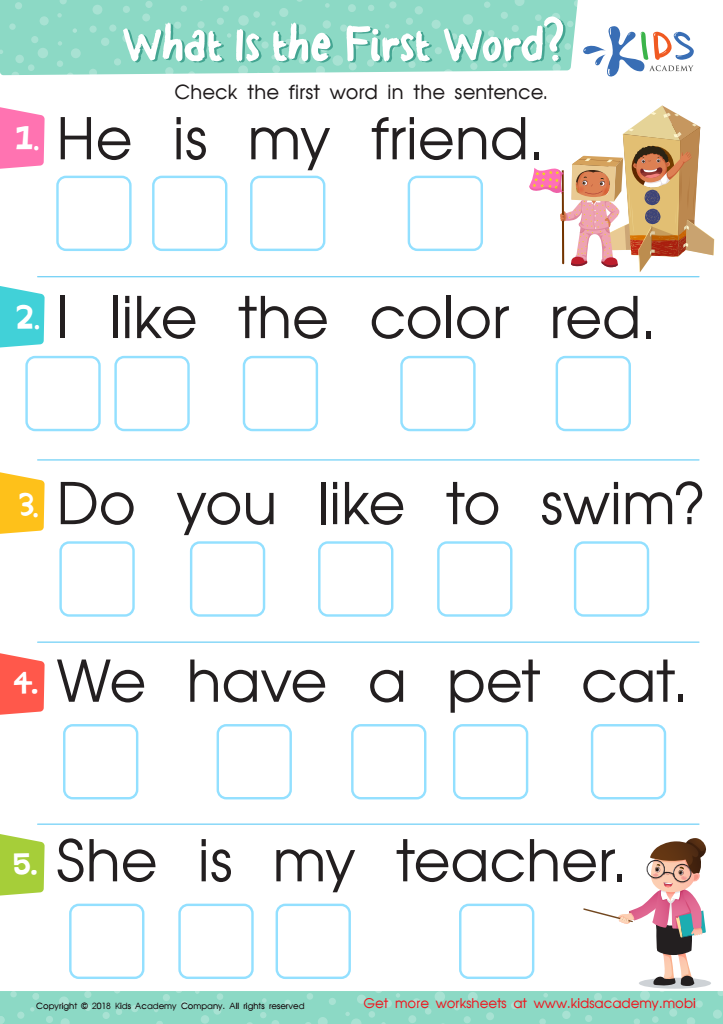

What is the First Word? Worksheet
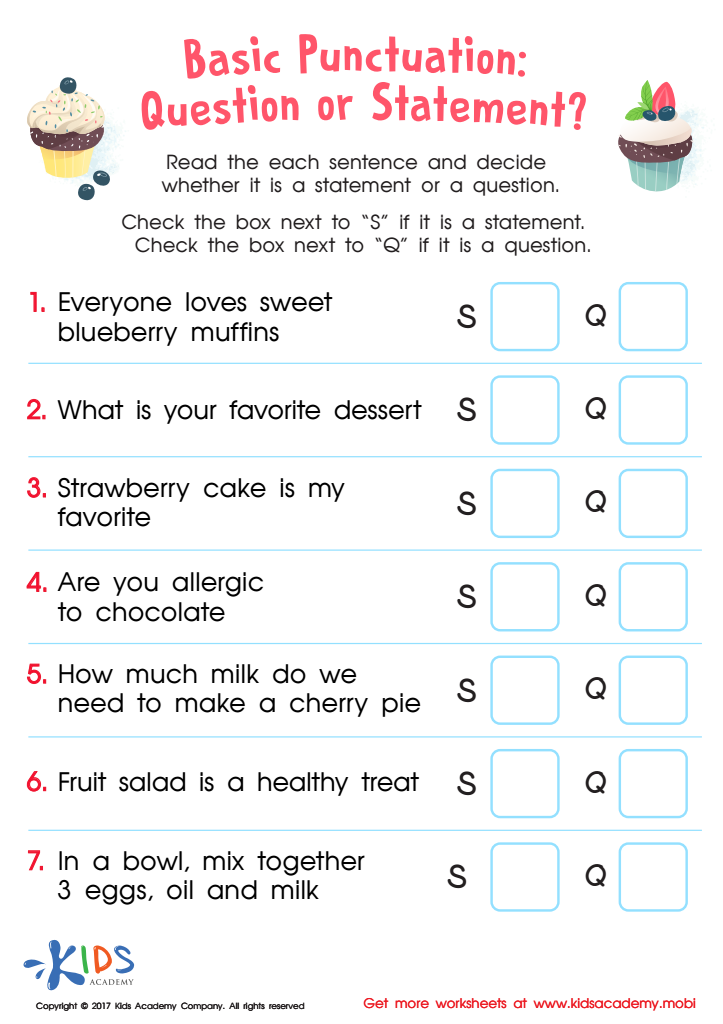

Basic Punctuation: Question or Statement Printable
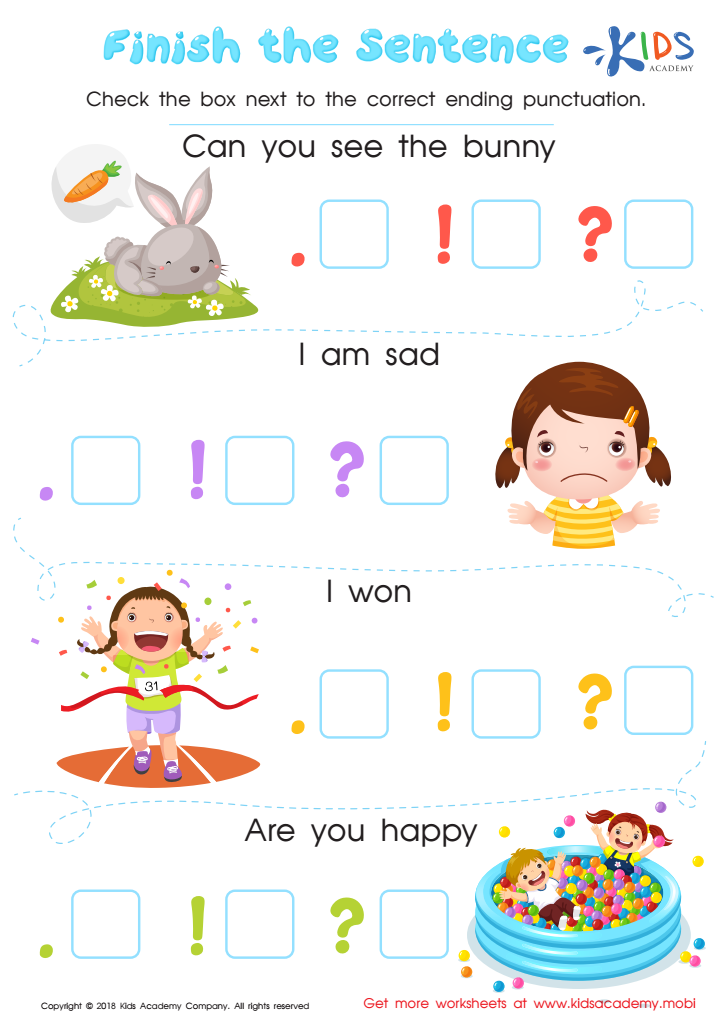

Finish the Sentence Worksheet
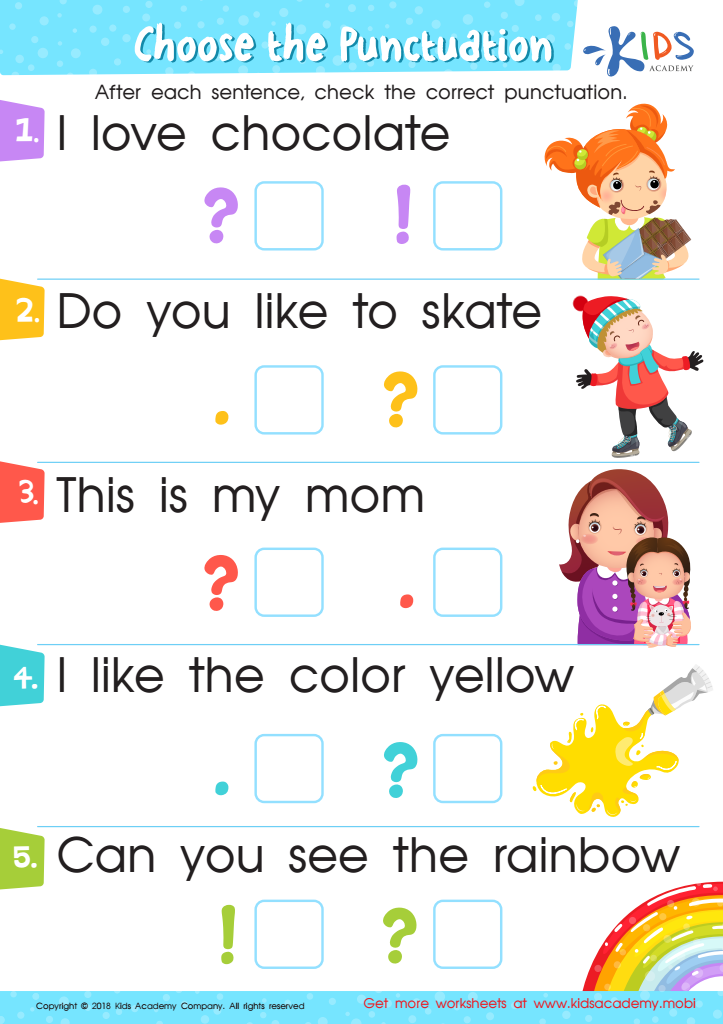

Choose the Punctuation: Assessment Worksheet
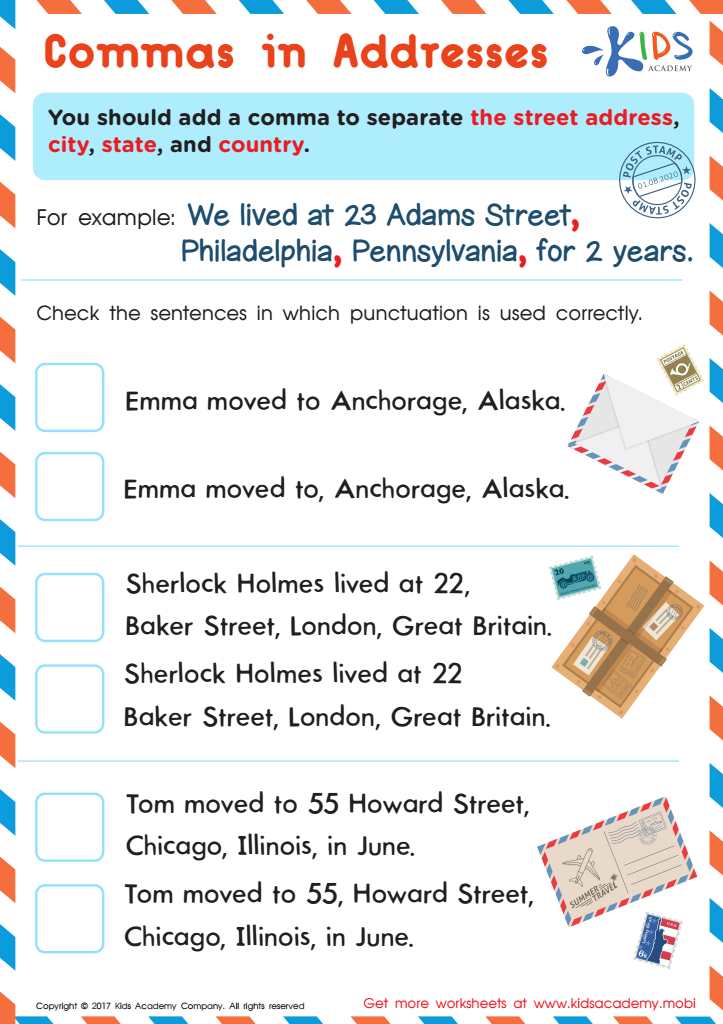

Commas in Addresses Worksheet
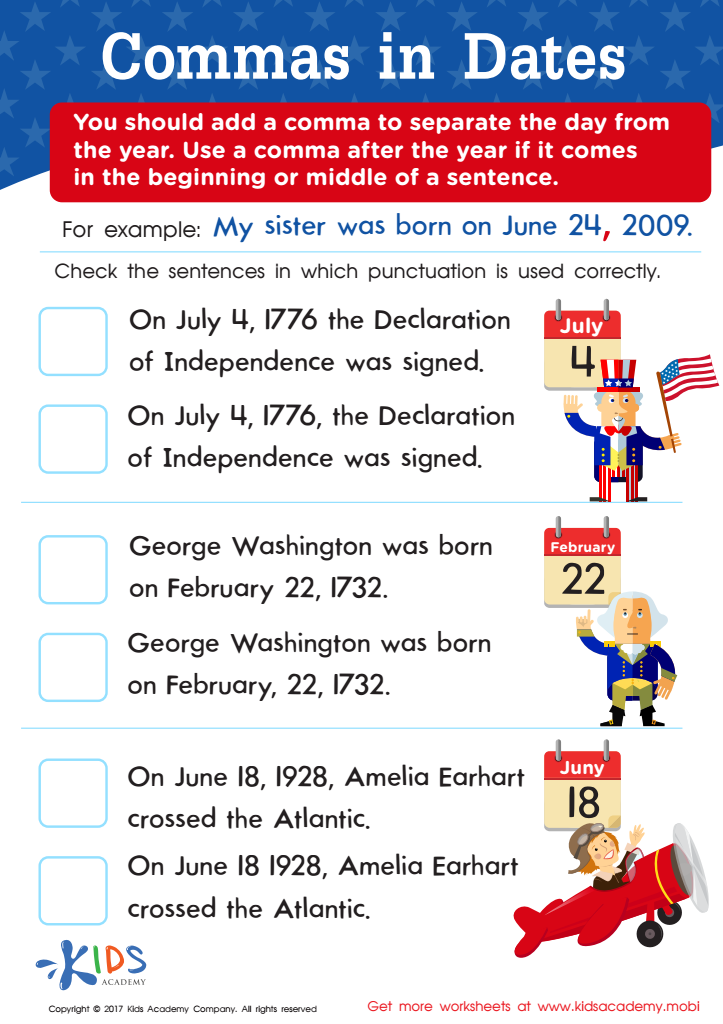

Commas in Dates Worksheet
Understanding normal punctuation is crucial for children aged 5-8 as it forms the foundation of effective communication. At this early stage of development, children are beginning to express their thoughts and feelings through writing. Punctuation marks like periods, commas, question marks, and exclamation points help convey meaning and emotion in their sentences.
Teachers and parents should recognize that mastering punctuation enhances literacy skills, fostering clearer expression and comprehension in young learners. Proper punctuation aids in breaking sentences into manageable chunks, making reading easier and more engaging. This clarity is essential as children progress in their writing abilities, allowing them to convey more complex ideas effectively.
Moreover, learning punctuation reinforces attention to detail, an important skill for academic success beyond literacy. Children also develop the ability to differentiate statements, questions, and excitement through practice, which is vital for both written and oral communication. Instilling an appreciation for punctuation early on sets the stage for good writing habits later in life.
Ultimately, fostering an environment that values punctuation not only improves children's writing skills but also enriches their confidence in expressing themselves clearly and creatively. In short, punctuation plays a vital role in developing effective communicators.
 Assign to My Students
Assign to My Students




















